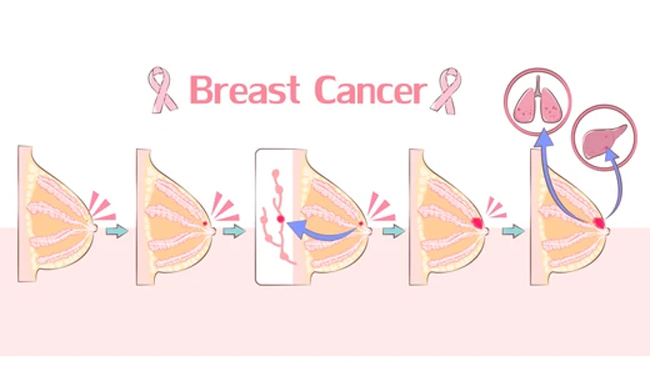
Jaipur, October 18, 2021.
Breast
cancer is the most common form of cancer affecting females in India, accounting
for14 per cent of all cancers among women. 1 in 29 females are projected
to develop breast cancer during their lifetime. Of these, more than 40% of
Indian women are diagnosed with advanced (stage 3 or 4) breast cancer. The ongoing
pandemic posed various obstacles contributing to late diagnosis and poor
treatment adherence, exacerbating challenges of limited screenings across rural
and urban areas and poor health-seeking behaviours. Other challenges include
social stigma, fear of cancer diagnosis or discussing the same with family
members, shame over having a breast examination, and alternative priorities,
which result in women neglecting their health and delaying screenings and care,
resulting in lowered patient survival rates at advanced disease stages.
Awareness
of risk factors may prompt greater self-breast examinations as well as
screening, which can enable timely disease detection. Risk factors include older
age, family history of breast cancer, inheriting certain genes.. Women who
start their menstrual periods early (before age 12) or have a late menopause
(such as after age 55), also are at a higher risk. Some other risk factors
include smoking, excessive alcohol consumption, obesity and reduced physical
activity, and the use of hormone replacement therapy, particularly after
menopause.
Women
at their most productive age between 30 and 50 years, are at considerable risk of developing breast
cancer.The prevalence is also rising amongst the younger population, with a
significant proportion of women affected below 25 years of age.
Dr. Naresh Somani, DM, medical oncology, HCG Hospital, Jaipur said, “Breast cancer is the most common cancer amongst women in Jaipur, as well as across India. Unfortunately, even though breast cancer can be easily diagnosed through screenings, as many as 50% of cases are detected in advanced stages of the disease, typically in the third or fourth stage, posing challenges to treatment. Breast cancer incidence increases with age, particularly at the end of the perimenopausal stage or at the start of menopause. However, women as young as 25 years old are also diagnosed, often in hereditary cases. Diagnosis is often delayed owing to women’s fear and hesitancy in seeking helping, despite the presence of symptoms, due to social stigma and it being a taboo subject, with the pandemic further contributing to diagnostic delays. Increased awareness is necessary to enable early detection, with regular check-ups a must after the age of 40, or even lesser for those with family history of breast cancer. Mammography, biopsies and MRIs can also confirm any suspicions.”
Dr. Somani further mentioned “Women who are diagnosed with advanced or late-stage breast cancer are treated on a priority basis. To address any inhibitions they have regarding examinations and treatment, counselling sessions are vital so the patient and their family is well-informed and familiarized with the disease and its management. Treatment options include hormone therapy, chemotherapy, and localized radio therapy. Health insurance coverage through schemes like the Pradhan Mantri Swasth Yojana and Chiranjeevi Yojana enable more patients to readily seek and benefit from such treatments. Over time, advanced cases are being frequently healed, with improved life expectancy and quality of life. Targeted treatment or molecular therapy has made a big difference to this, helping manage the condition even at advanced stages while avoiding side effects. Due to the availability of such services, women’s perception of the disease and treatment has altered, and life expectancy has increased to an average of 3 to 5 years with these new therapies. This can be particularly beneficial compared to treatments such as chemotherapy, which has several physical and socio-psychological side effects.”
Many
patients and their families believe that advanced breast cancer represents the
end of life.A pattern observed across Indian women and their care takers, instead of
spending on treatment for attaining an
improved standard of care, patients and their care takers believe to save money
for future of families
This
October, which marks Breast Cancer Awareness Month, there is a dire need
to raise awareness amongst patients and caregivers about the availability of
treatment options even at advanced stages of the disease.
If
you’re an advanced-stage breast cancer patient – discuss your treatment options
with your oncologist to manage your disease, alleviate troubling symptoms and
live with an enhanced quality of life and care.